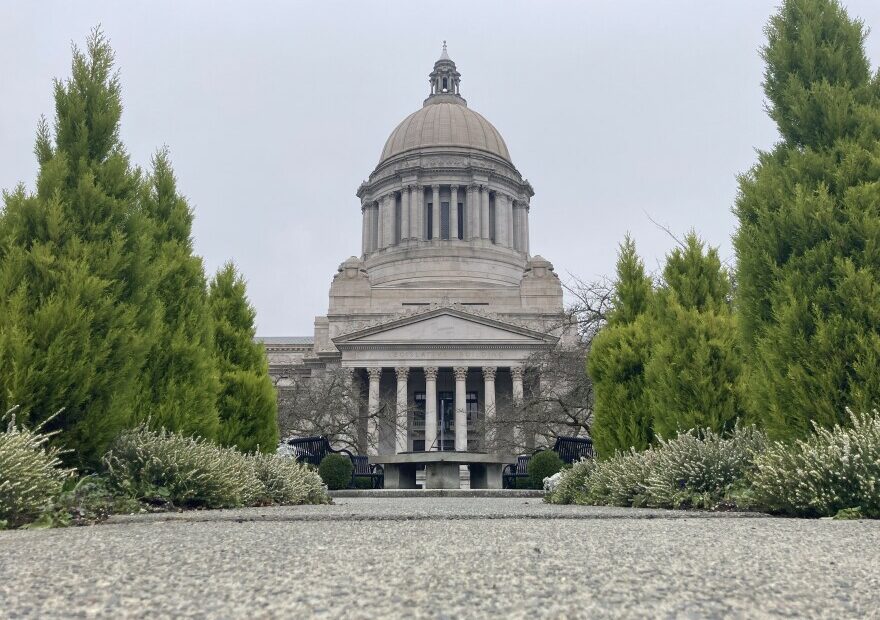
Bill swap, money talks, and initiative hints: A look at week 6 of WA’s legislative session
By: Jeanie Lindsey, NW News Network
With just a few weeks left in this year’s legislative session, Washington lawmakers are starting to unveil budget plans and consider bills in the opposite chamber.
Another cutoff deadline came down Tuesday, meaning it was do-or-die for policy proposals awaiting a vote in the chamber they started in.
A proposal to lower the Blood Alcohol Content threshold for DUI charges – from .08% down to .05% – missed the cutoff.
The idea stalled in the Legislature last year too, even as road deaths are at historic highs in Washington. State data show roughly half of fatal crashes involve an impaired driver.
Sen. Marko Liias (D-Edmonds), the chair of the Senate Transportation Committee, promised that he and Sen. John Lovick (D-Mill Creek), the bill’s sponsor, will continue working on rallying support around making the change – and centering voices of people who have lost loved ones because of impaired drivers.
“This is a pretty significant policy shift for the state,” said Liias. “This is about a conversation with Washingtonians.”
There’s still plenty of interesting legislation moving forward though, including some new gun regulations, legislation expanding the use of cameras to enforce traffic laws, and a slate of bills aimed at opioid treatment, prevention, and education. One bill would make Washington’s popular nickname, “The Evergreen State,” official under state law.
Lawmakers in the House also approved a hotly debated rent bill this week, after days of uncertainty for its path forward in the Senate. House Bill 2114 is now in front of the Senate Ways and Means Committee – meaning the House bill will avoid the committee where its Senate companion stalled earlier this session.
Talking about money
Budget writers in the Legislature got a look at Washington’s revenue forecast this week, just ahead of budget proposals coming out. It shows an expected increase in state revenue of about $337 million over the next four years compared to previous forecasts, and assumes that the state’s capital gains tax remains the law of the land.
Chief economist Dave Reich says he anticipates Washington’s economy will continue to grow this year – albeit at a modest pace.
“Naturally that means slow employment growth, it means inflation will continue to trend down slowly from where it is now,” Reich said.
House budget writer Rep. Timm Ormsby (D-Spokane) says the latest analysis points to a solid foundation for the state’s budget.
“I would characterize this forecast as a modest improvement to a strong economy,” he said.
Senate Republican budget lead, Sen. Lynda Wilson (R-Vancouver), says she’s still concerned about the cost families are paying for everyday essentials.
“Inflation is leveling off, however we don’t want to forget that people are feeling this,” she said. “Those prices haven’t come down, it just means that they’re just not inflating as fast as they were.”
After the forecast came out, a bipartisan team of Senate budget writers unveiled their proposed spending plan for construction projects across the state. The construction, or capital, budget is one of three that the Legislature works on. Lawmakers will also pass a transportation budget as well as the operating budget – which is the largest of the group and funds state programs and services.
The Senate construction proposal features $1.3 billion in new spending, including:
- $89.3 million for a behavioral health hospital in Tukwila and additional drug treatment facilities run by tribes.
- $119 million for the state’s Housing Trust Fund, and other affordable housing projects.
- $121.5 million for K-12 school construction.
The Senate proposal does not assume capital gains revenue beyond 2024, in case that tax is repealed. The capital gains tax applies to profits from sales of assets, like stocks and bonds, that exceed $250,000. The House will release its proposed construction spending plan in the coming days.
An update on those voter initiatives
Democratic leaders in the House and Senate told reporters Wednesday that the majority party is nearing a decision on what to do with the unprecedented slate of initiative measures before them. Two of the voter initiatives – aiming to repeal the capital gains tax and key parts of the Climate Commitment Act – will not get public hearings. But Democrats are still sorting out what to do with the rest.
“We don’t have the final decision on which ones or when, but there will be some hearings,” said Senate Majority Leader Andy Billig (D-Spokane).
The remaining four initiatives would ban income taxes, make the state’s long-term health care tax optional, roll back limits on police car chases, and create a so-called “Parents’ Bill of Rights.”
“Those will be in the mix for us to consider more strongly whether or not we hear them,” said House Speaker Laurie Jinkins (D-Tacoma). “I don’t know if we hear all four of them or some subset, but we’re getting very close.”
Republicans in the Legislature have pressed Democrats to immediately hold hearings on all six of the initiatives. But the majority has so far rejected those efforts. Democrats have pointed to inconsistent precedent on how lawmakers have handled initiatives in the past, and say they need to better understand the full impact of each of this year’s proposals.
Democrats say they’ll only hear measures that could be enacted as-is or include a proposed alternative. If the Legislature approves an alternative, it will appear on ballots next to the initiative – giving voters the option to choose between the alternative or the original initiative measure.
Lawmakers have until March 7 to take action before the issues go to voters this fall.















